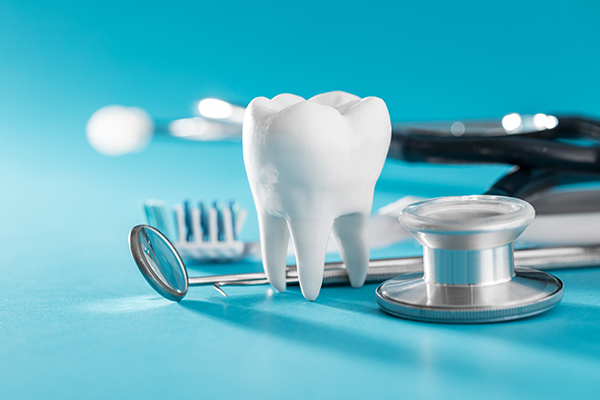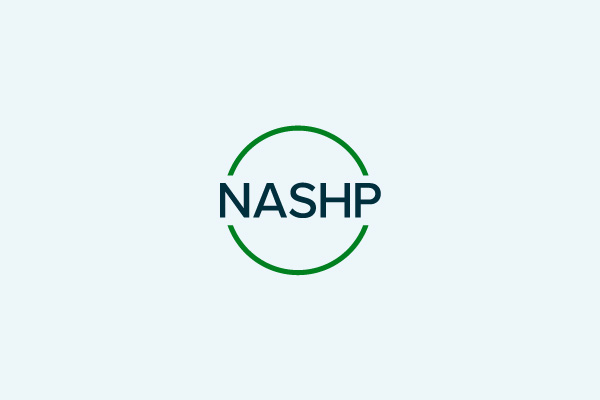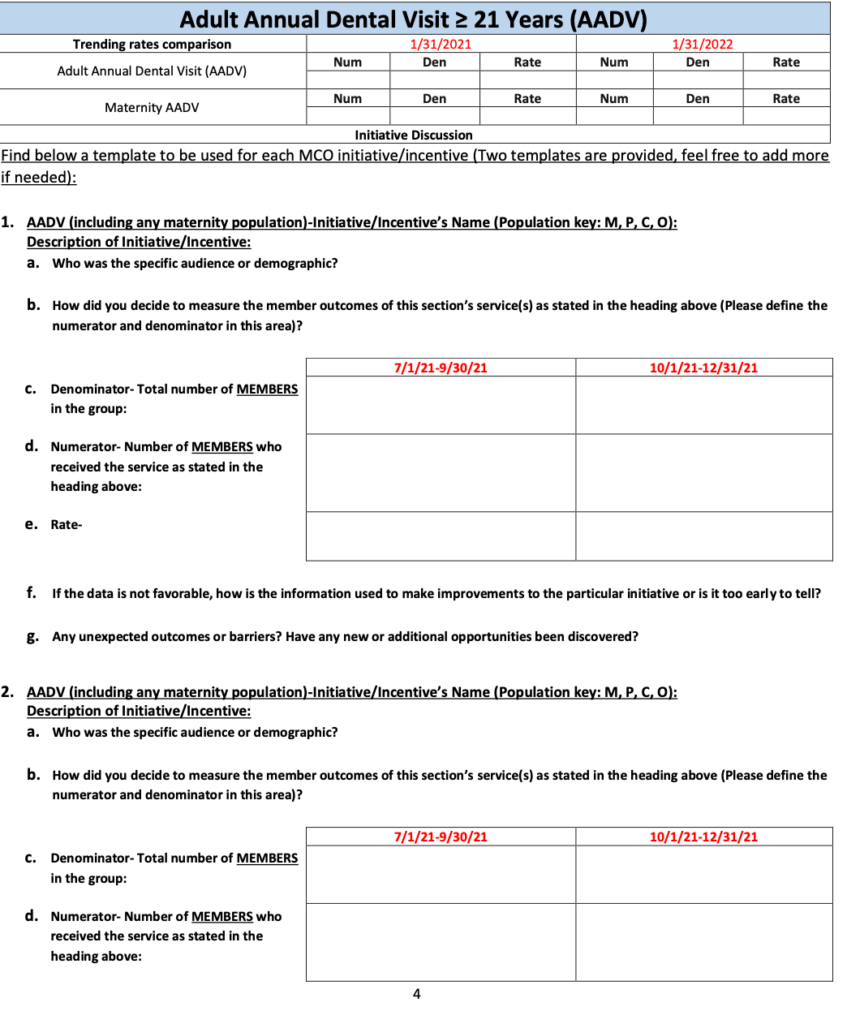Through a unique partnership between the Iowa Medicaid and public health agencies, Iowa’s I-Smile program addresses the disproportionate impact of dental disease on low-income individuals. I-Smile and its related I-Smile @ School for children and I-Smile Silver for adults help promote preventive oral health services and reduce barriers to dental care across the state.
I-Smile Background
In children, dental caries is the most common chronic disease, affecting 60 percent of individuals ages 5 to 17. Additionally, studies indicate that up to 40 percent of pregnant women experience periodontal disease, and 25 percent of adults over age 65 lack their natural teeth. Additionally, significant disparities exist. In 2016, Medicaid recipients accounted for more than half of dental-related emergency room visits, and in 2019, 44 percent of low-income adults had untreated tooth decay.
Dental disease not only adversely affects oral health, but is also associated with diabetes, heart disease, stroke, and low birth weight and preterm births. Fortunately, preventive oral health care, including sealant and fluoride treatments, can save money and lives. While many states are expecting budget cuts in response to COVID-19-related revenue declines, increasing access to preventive dental care through programs like Iowa’s I-Smile may minimize long-term dental and overall health costs by effectively reaching underserved populations.
In May of 2005, Iowa passed the IowaCare Medicaid Reform Act, which includes the provision that every child age 12 and younger enrolled in Medicaid must have a designated dental home. In addition, the legislature sought to ensure that children are provided with the dental screenings and preventive care identified as part of the Early and Periodic Screening, Diagnosis and Treatment (EPSDT) program’s oral health standards. I-Smile was created in response to this 2005 legislation and funded via a Memorandum of Understanding (MOU) between the Iowa Department of Human Services (IDHS) and the Iowa Department of Public Health (IDPH).* IDPH holds the majority of the responsibility under the MOU and contracts with local Title V agencies (public or private non-profit organizations), that administer I-Smile and ensure access to oral health services for children and pregnant women across the state.
Oral Health in Iowa at a Glance:
- In 2002, Medicaid reimbursement for preventive oral health services became the standard of care for dental screening centers in Iowa.
- In 2018, $22 million of a total $31 million spent on preventable dental surgeries for children ages 5 and younger was billed to Medicaid.
- In 2019, 73 percent more Medicaid-enrolled children in Iowa saw a dentist than in 2005.
- In 2018, 50 percent of Medicaid-enrolled children received a dental service, including two out of every three children ages 3 to 12. Iowa rates surpassed both the national average of 34.6 percent of low-income children receiving preventive dental care, as well as the Healthy People 2020 goal of 33.2 percent.
- In 2018, more than 30,650 children received preventive dental care in public health locations, including Women, Infants, and Children (WIC) clinics, schools, and Head Start centers. This number is almost four-times as many as in 2005.
- Medicaid costs per child (ages 0-12) per year have remained relatively steady since the start of the program in 2005. After accounting for inflation and a 1 percent rate increase in 2014, the average cost was $150.75 in 2005 and $170.74 in 2019.
- Iowa met the Healthy People 2020 goal to reduce the proportion of adults 65-74 years old that have lost all of their teeth; in 2014, 13 percent of Iowa adults ages 65-74 years were without their natural teeth, well under the goal of 21.6 percent.
*The MOU for I-Smile does not include I-Smile @ School and I-Smile Silver.
I-Smile in Practice
I-Smile’s mission is to connect Iowa children with “dental, medical and community resources to ensure a lifetime of health and wellness.” I-Smile primarily targets the 47 percent of Iowa children ages 0-12 who are enrolled in Medicaid in order to provide dental care and disease detection early in life and limit costly, preventable dental procedures. Additionally, given the link between mothers’ oral health and their infants’, I-Smile also serves pregnant women.
Twenty-three I-Smile coordinators are responsible for implementing I-Smile strategies within all 99 Iowa counties by serving as a point of contact with the dental network. I-Smile coordinators work with families, dentists, medical professionals, schools, businesses, and local non-profits to assess community needs, coordinate dental care, improve oral health literacy and reduce barriers to care. I-Smile uses multiple approaches to improve dental care, including:
- Partnering with WIC clinics, schools, Head Start centers, preschools, and child-care centers to provide dental screenings and fluoride application;
- Coordinating dental appointments, including scheduling, setting up transportation assistance, and helping parents find payment sources for dental care;
- Training medical professionals to administer fluoride varnish and screen for dental disease; and
- Educating community members about the importance of oral health through public events, health fairs, and online informational tools.
I-Smile @ School
I-Smile @ School is a division of I-Smile that helps children access dental care by providing dental screenings, sealants, fluoride varnish, and oral health education in elementary and middle schools during the school day. I-Smile @ School strategies include:
- Assessing oral health needs of schoolchildren;
- Developing networks with dental offices; and
- Providing oral health education, preventive dental services, and care coordination.
I-Smile @ School is administered by 19 Title V agencies across the state. Funding sources include the Title V block grant, Medicaid reimbursement, a Centers for Disease Control and Prevention grant, and the Delta Dental of Iowa Foundation. Schools must have a minimum of 40 percent of students on free or reduced lunch plans to participate in the program. In the 2018-2019 school year, 43.4 percent of children who received a dental sealant through I-Smile @ School were enrolled in Medicaid, and an additional 9.8 percent had no dental insurance.
I-Smile @ School’s goals align with the Healthy People 2020 and Healthy Iowans 2017-2021 objectives, which include increasing dental sealants and preventive dental services for children and reducing untreated dental decay. In its Strategic Plan for 2018-2023, the program identified three outcome measures:
- Increase the number of schools served from 63 to 74 percent;
- Provide sealants to 5 percent more children; and
- Increase the sealant program consent return rate from 42 to 52 percent.
The strategic plan also identified a number of focus areas, including building cross-agency partnerships, implementing a state system for data collection, creating a communication plan for disseminating oral health information, and improving I-Smile @ School’s infrastructure.
I-Smile Silver
Iowa is one of 19 states (including Washington, DC) in which Medicaid covers extensive adult dental benefits. Through Iowa’s Dental Wellness Plan, Medicaid enrollees ages 19 and older can access full benefits, provided they complete “Healthy Behaviors” annually, which include an oral health self-assessment and preventive services. Despite this, adults, and especially senior citizens, report widespread barriers to care and low utilization rates. In 2016, 38 percent of Iowa seniors had not seen a dentist in five years, and 53 percent reported they could not afford dental care.
| In Iowa, full adult dental benefits cover the following: Diagnostic and preventive dental services Exams Cleanings X-rays Fluoride Fillings for cavities Surgical and nonsurgical gum treatment Root canals Dentures and crowns Extractions |
I-Smile Silver is a pilot program implemented across 10 Iowa counties designed to help adults ages 21 and older access dental care. I-Smile Silver is administered by the Iowa Department of Public Health using funding from the Delta Dental of Iowa Foundation and a Health Resources and Services Administration grant. The pilot project began in November 2014. IDPH contracts with three county health departments (covering 10 counties) to conduct the project. Each contractor has a dental hygienist as the local I-Smile Silver coordinator who is responsible for implementing strategies that include:
- Assessing needs and assets related to oral health;
- Providing training for medical providers, direct care staff, and home care providers;
- Creating referral networks with dental and medical offices to address oral health needs;
- Working with hospitals and health systems to address oral health related to chronic disease;
- Promoting oral health through participation in community events and distribution of materials; and
- Providing care coordination and preventive dental services.
In 2017, the IDPH conducted its first screening survey of older adults’ oral health. The project will continue to grow over the next two years, with the hope that its importance will be recognized and the program will receive funding to allow for statewide expansion of the pilot.
Key Takeaways:
- Through an MOU, states can create cross-sector partnerships in order to fund oral health initiatives and create clear implementation responsibilities across agencies.
- States can effectively reach low-income children and pregnant women by partnering with local organizations to provide dental services and oral health education, including leveraging Title V agencies and schools.
- Providing strong care coordination services is a critical tool for helping individuals access preventive dental care.
Challenges and Next Steps
While Iowa continues to make strides in increasing access to dental and oral health care, particularly among Medicaid-eligible children, some challenges remain. Compared to 60 percent of children ages 3-12, only one in five Medicaid-enrolled children under age 2 saw a dentist in 2019. To increase these numbers, I-Smile started the Cavity Free Iowa campaign to train pediatricians to provide preventive oral health care, including fluoride varnish applications, and education on the importance of oral health.
Additionally, though the number of children on Medicaid is increasing, Iowa is experiencing a decline in dentists who accept Medicaid. Providers note that Medicaid has lower reimbursement rates than private insurance, and often comes with additional administrative burdens.
Finally, as the COVID-19 public health emergency continues to unfold and dental offices address the pandemic’s effects, the long-term impact on oral health care remains unknown. Especially for children who receive dental services through school-based programs such as I-Smile @ School, the pandemic raises concerns about children’s ability to continue to be screened and treated should schools remain closed in the fall. Moreover, older citizens, who are at increased risk for COVID-19, may not feel comfortable leaving their houses to go to the dentist.
To address some of these concerns, Iowa is working to increase the use of silver diamine fluoride, a preventive treatment that can arrest dental decay. The state anticipates there will be fewer dentists accepting new Medicaid patients in the future, and is therefore emphasizing the importance of preventive oral health now to limit future complications requiring care. Iowa is also looking at new points of contact to reach children and adults. As a result of COVID-19, IDPH is preparing to play a bigger role in the dental delivery system by screening for disease, triaging who needs to be seen within a dental office and collecting diagnostics to send electronically to dentists to complete a telehealth exam. While the pandemic may require I-Smile @ School and I-Smile Silver to revise some of their strategies, in the months and years to come programs like I-Smile will undoubtedly play a crucial role in helping Medicaid-eligible children, pregnant women and adults obtain necessary dental services.
Acknowledgements: The author wishes to thank the state officials in Iowa who graciously shared their experiences and reviewed a draft of this publication. Trish Riley, Neva Kaye, and Carrie Hanlon of NASHP provided helpful guidance and assistance. Finally, thank you to the Health Resources and Services Administration officials who provided thoughtful input.
This project was supported by the Health Resources and Services Administration (HRSA) of the US Department of Health and Human Services (HHS) under grant number UD3OA22891, National Organizations of State and Local Officials. This information or content and conclusions are those of the author and should not be construed as the official position or policy of, nor should any endorsements be inferred by HRSA, HHS or the US government.



